Alexander Blessin
KV Oostende, 2020–2022
When Ralf Rangnick called me, it was a lovely surprise.
I’d been out of the game for three and a half years since retiring from playing, working in insurance. But the phone call came just when I was looking at getting back into football.
I knew Ralf (below) because he’d tried to sign me twice as a player in the mid-to-late 1990s, and then I played under him for a short time at both VfB Stuttgart and Hoffenheim.
On both occasions he wanted to look for a younger player – which has always been a theme of his career – and moved me on. But we developed a good relationship nonetheless – we liked each other.
We also have similar footballing philosophies, and see the game in a similar way. We like a ball-oriented out-of-possession game, based on Helmut Gross’ thinking. I liked that way of playing as a player; putting opponents under pressure when they had the ball.
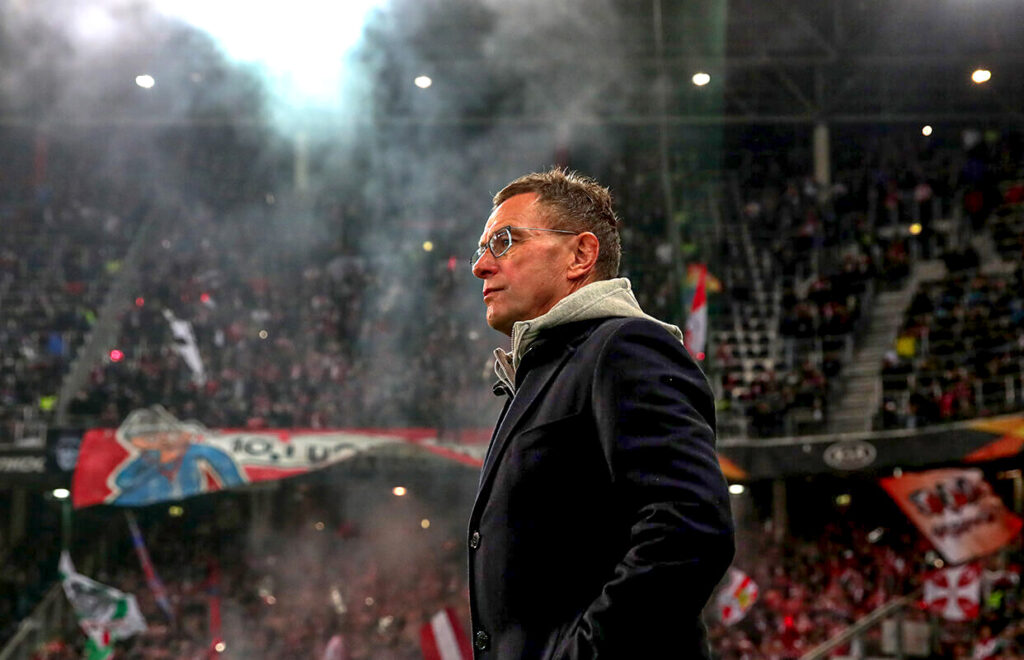
When he phoned, he asked me what I was thinking about my job, so I told him I was looking at moving into coaching. He told me there was a possibility he was going to Leipzig. He had actually had interest from a Premier League club, too, but in 2012 he chose to join the Red Bull organisation as director of football.
We had a few meetings about what he was going to do and what I could do, and they went really well. I liked the sound of it. The conversations we had convinced me getting back in to football was the right move, even though I’d fallen out of love with it a little.
I hadn’t played to a very high level.
I was only in the Bundesliga for two seasons with Stuttgart. And, when I was there, I didn’t really play very much. I spent a year in the Turkish first division with Antalyaspor as well – but, again, I didn’t play an awful lot of games.
"I wanted a bit of time out of the game, so I got a job in insurance"
Throughout my career, though, I was a leader. I was often the captain of teams I played for, and someone the younger players would look up to.
They would come up to me and ask me for advice, and I always enjoyed trying to help them. I got a special feeling from taking responsibility for the younger guys; from using my experience to help them. In my early 30s, I had already started thinking about coaching.
Then, I had a conversation with Hansi Flick (below, right), who was my manager at Hoffenheim in 2005. I was 32 at the time, and considering what to do once I stopped playing.
Hansi had played for Bayern Munich, but a really bad injury had hastened his move into coaching.
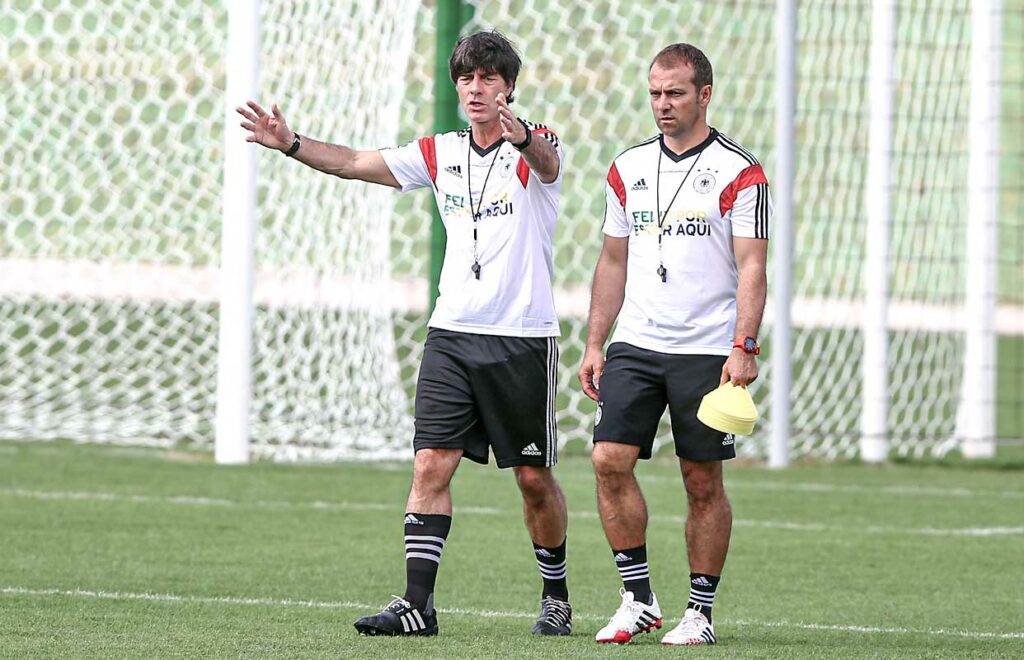
“Coaching is great,” he told me. “But as long as your body will allow you, carry on playing.”
After that, I focused on playing. To be honest, I forgot about coaching for a while. When I retired, I felt too old, too slow and too bad to carry on!
I was a little bit frustrated with football, because the last three clubs I played for went insolvent. I wasn’t being paid, and I didn’t want to go on with football and risk this continuing to happen. By this point, I had a family to think about.
So, I decided I wanted a bit of time out of the game, and got a job in insurance.
"At Leipzig, I got a taste for coaching professional players. That was enough for me"
To be honest, even though now it feels like a world away from what I want to do, I think it was really good for me. Good for my development as a person, and perhaps too as a coach.
I went from being the expert – the guy who people looked up to – to one of the people who needed guidance, and I found that extremely helpful. After three and a half years, though, I knew I didn’t want to stay in insurance for the next 20 or 30.
I’d been doing my badges, and then came the call from Ralf.
I had to talk to my wife about whether it was the right thing to do.
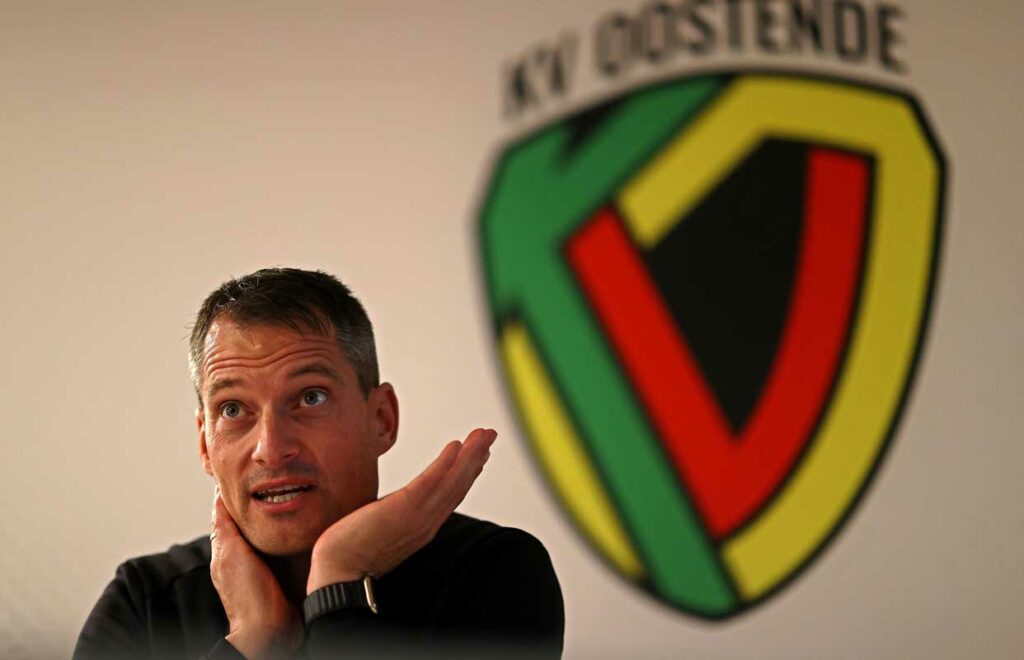
You never know when you start something like this – a completely new job – how things are going to go. Especially when you are almost 500 kilometres from your family, who were going to stay in Stuttgart. But we decided together that I would do two years and we would see how it went.
There was lots from my playing days that I took into coaching, but I didn’t think in any way that my 15 years as a player would make me a good coach. When I started out, I wanted to learn everything. I wanted to do every qualification there was.
I started out as an assistant coach in the RB Leipzig youth teams, and took the time to learn my trade. Eventually I took my own team, and then I worked my way up over eight years at the club, as Under-16, then Under-17 and finally Under-19 head coach.
"From the start, I had a good feeling about Oostende"
Something that did help me, though, was that I knew exactly how I wanted my teams to play because of the football I’d enjoyed as a player. When you like a philosophy as a player, it is very easy to take that into coaching and implement it. When you’ve been one of the players doing what you then want your players to do when you’re a coach, you know what to ask of them.
Right from the start, I loved coaching. I loved helping young players and seeing them move up to the first team. I can see why so many coaches decide to stay in youth football, but at Leipzig I got a taste for coaching professional players. That was enough for me.
The RB Leipzig Under-19s is the closest team to the first team. There is no reserve team, no Under-21s. I was one step away from the professionals.
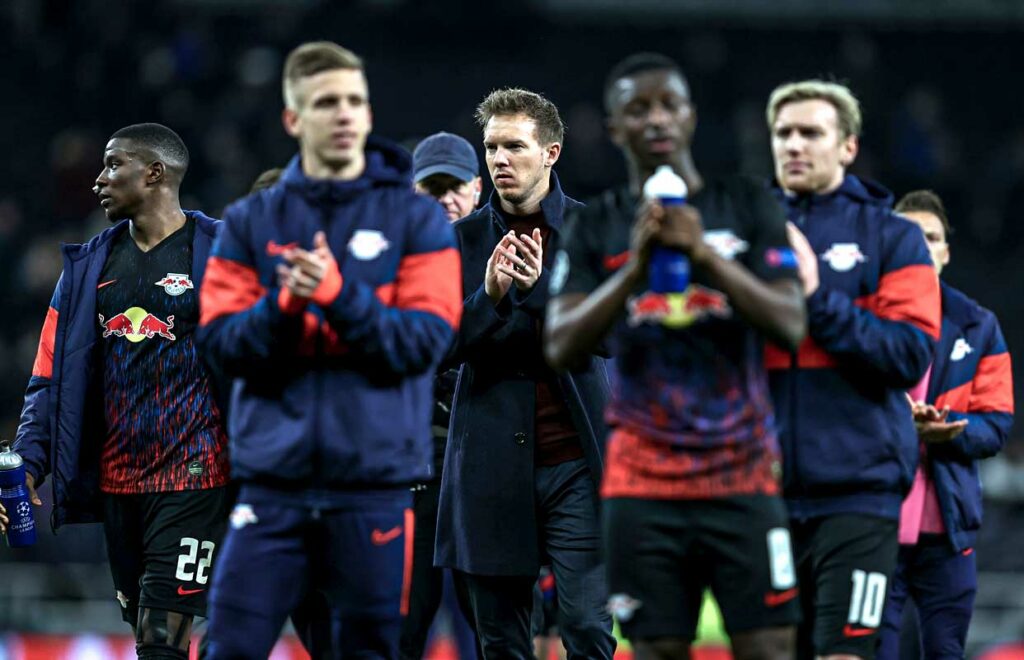
I was constantly helping to provide players for the first team – three or four players were with them every day – and I worked with the managers to help give them the best chance of winning games.
Once I knew I wanted to work in first-team football, in my mind, it was only a matter of time before that happened.
Julian Nagelsmann (above) signed a four-year contract as manager in 2019, so that route was closed off. I started looking elsewhere.
My wife suggested I started looking somewhere closer to Stuttgart. For me, it was about looking for the right step. I spoke to a few clubs, but nothing quite felt right.
"I arrived in the middle of the covid pandemic. we only had 12 players in the squad"
Then the sporting director of KV Oostende, Gauthier Ganaye, approached me. Oostende were part of a group of seven clubs that shared the same owners. It was a similar set-up to that at Red Bull, and obviously I had plenty of experience in that kind of environment.
From the start, I had a really good feeling about it. They wanted to sign and develop young players; they wanted a heavy focus on data; and they wanted me to play the same kind of football we played at Leipzig. It was exactly what I was after.
The final hurdle was my wife. Oostende was even further away from Stuttgart: around 650 kilometres – a long, long way. I told her about the opportunity and expected to have an open conversation about whether or not I would take the job.
But she shocked me.
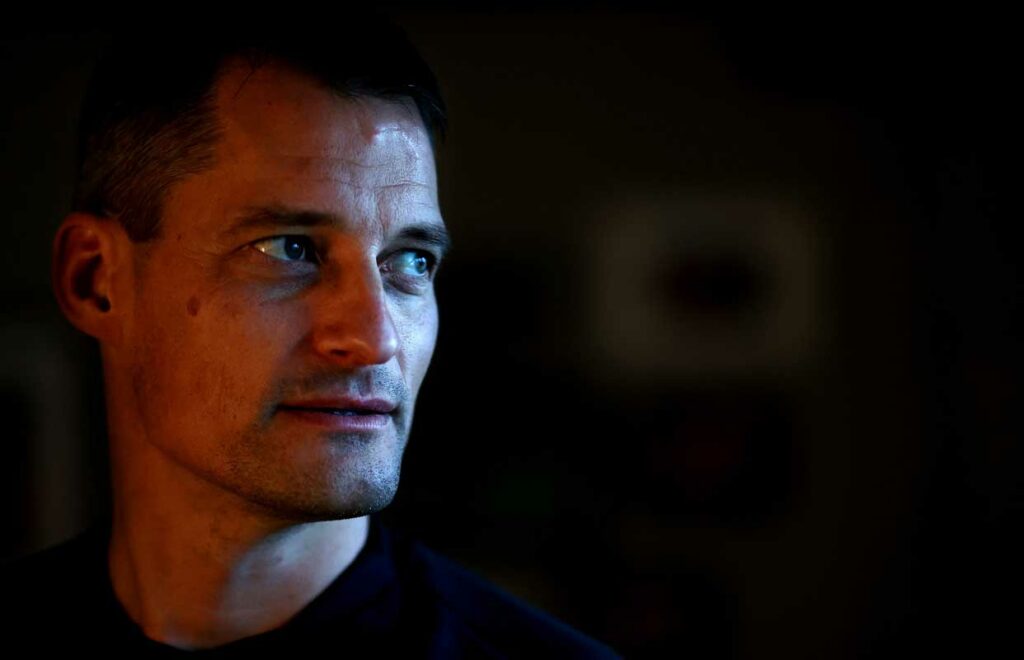
“You don’t have any decision to make,” she said. “I can see it in your eyes. You want the job, so you have to take it.”
Testing myself in a new country, in a new league, getting out of my comfort zone; it all really appealed to me. I was 100 per cent clear it was the right decision for me.
There were challenges from the start, though.
I arrived in June 2020; in the middle of the Covid pandemic, and after a three-month break to the footballing calendar. What’s more, we only had 11 outfield players and one goalkeeper in the first-team squad. So, even the few players I did have were unfit.
"You have to be authentic. Otherwise, the players won't get behind you like you need them to"
But, week by week, we slowly improved. New players came in on trial, and we signed a bunch of them on free transfers. There were a couple of deals that cost us some money, but they were cheap deals, and a few more loans.
I implemented my style of play, and the players were really open to learning it. I think they enjoyed it.
After about five weeks, we had a friendly game against Union Saint-Gilloise, a team in the second tier of Belgian football. There’s no other word for it: our performance was horrible. We lost 2-1.
As a team, we sat down and discussed what went wrong. We did loads of analysis and watched videos together. After a week of hard work, we knew what we had to improve. We played Cercle Brugge, a First Division side, in another friendly.
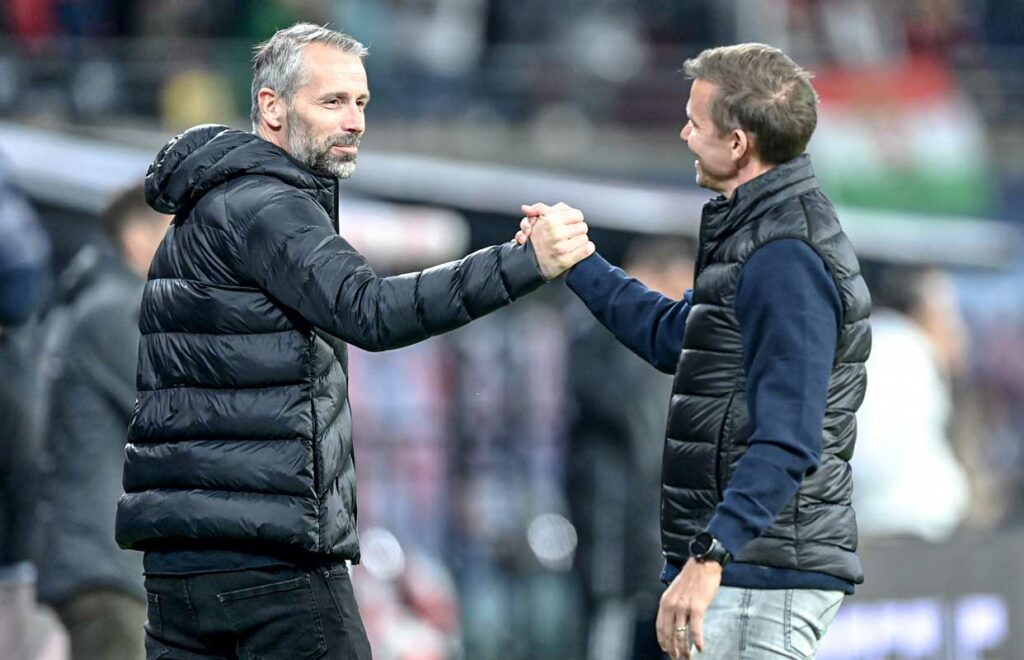
It all came together, and we won 3-1. It was a lightbulb moment for lots of the players. They realised that, when you all pull together in the same direction and you all know your job, the results can be amazing.
It meant that, even when we lost the first couple of games of the league season, neutrals and opponents recognised that we were playing good football. And the players could see that positive results weren’t too far off. They clearly felt they were part of something that would eventually work.
And it did, as we came fifth in the league in my first full season as a first-team manager.
I am from the Red Bull school of coaching, but I have my own thoughts about how the game should be played. There are lots of similarities in how Marco Rose (who was at Salzburg), Jesse Marsch (above, who has managed both Salzburg and Leipzig), Julian Nagelsmann (who has managed Leipzig) and I tell our to teams play. Maybe about 60 per cent of the game, we agree on. The rest, we have our own style, our own philosophy.
I wouldn’t try to be like any of the others because doing so would make me inauthentic. You have to be yourself – 100 per cent.
"I have made mistakes and I don't mind my players making mistakes. The key is to learn from them"
Of course, you can appreciate parts of a coach you want to take into your own behaviour. I do that with Jürgen Klopp. Obviously, there is a lot to like about him; a lot to learn from him. I would only ever take little bits, though.
As a player, I had a coach called Dragoslav Stepanovic who taught me the importance of being positive in any situation. He showed me that you are a role model as a coach, and you need to make the players feel like they can follow you into battle. He was completely positive during a relegation battle we were in, and I appreciated that as a player.
I learned a lot about the tactical side of the game from Ralf Rangnick, as well as Ralph Hasenhüttl and Julian Naglesmann, too.
But you have to be honest. You have to be true to yourself. Otherwise, the players won’t get behind you like you need them to.
You have to have a bit of an ego to be in this line of work. To stand in front of 30 people and convince them your way of thinking is the right way, you need self-confidence.
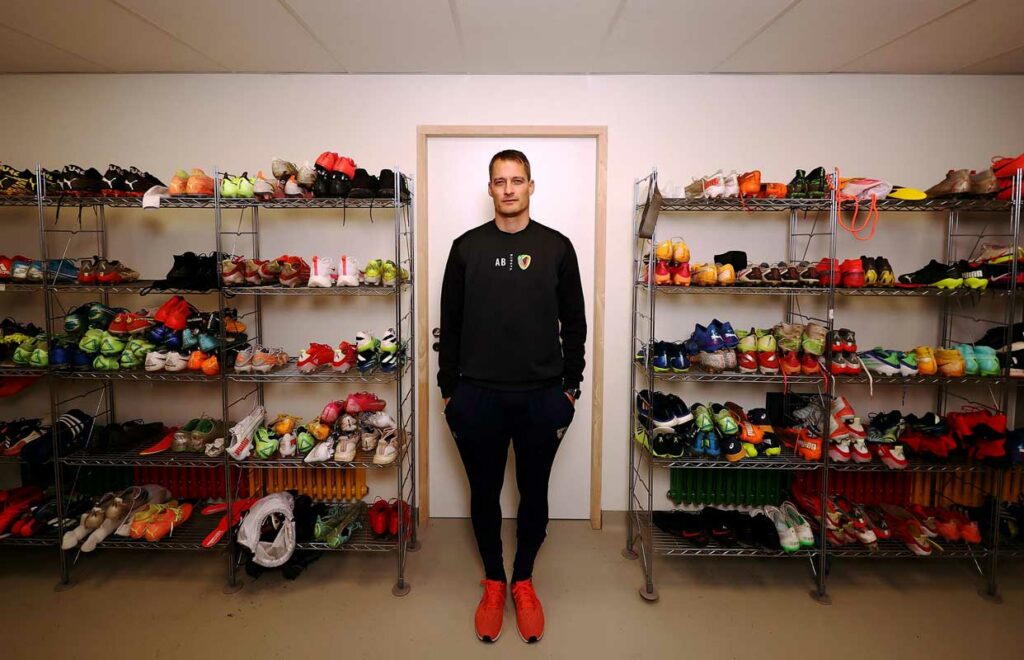
But, at the same time, you can’t think you know everything. You can never let yourself reach that stage of thought.
I know I make mistakes. I tell my players I have made mistakes – but crucially, I say, I make sure to learn from them.
That is what I want from them. They are free to make as many mistakes as they want – football is a game of mistakes – but they need to learn from those moments.
As a coach, it’s so important to be open to new things. If you aren’t constantly looking for ways to be better, you’ll just stand still.
The last thing I want to do is stand still, but I also don’t have a specific career plan. I’m really enjoying the challenge at KV Oostende, but I would like to challenge myself in one of the top six leagues at some point in the future.
Who knows when, and who knows how far it will be from Stuttgart this time.
Ralf Rangnick was our very special guest for the first Coaches' Voice webinar. If you missed it and want to watch the full hour of fascinating insights from Ralf, you can do so here!

Alexander Blessin


